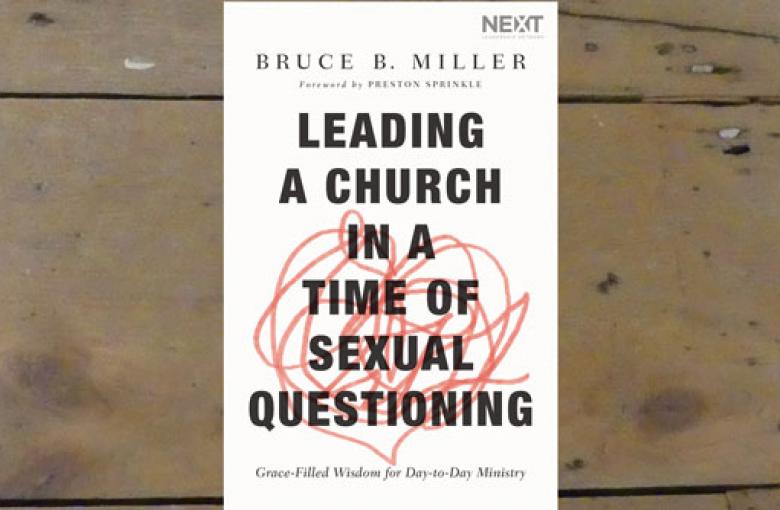On the back cover of “Leading a Church in a Time of Sexual Questioning”, the claim is that this book offers “…biblical guidance for ministering God’s love in a sexually diverse culture.” The words “God’s love” are circled in red, emphasising that central theme.Compassion drives this book. Miller shows great care and concern, and urges his readers to exhibit those same qualities, for the queer teenagers who are being raised in a Christian home, the gay man who has walked away from his Christian faith and the lesbian couple who have never even been in a church.
A few years ago, I visited a church to preach. I vividly remember the small talk with somebody before the service. “I assume you are married with kids,” they said. “No. I’m single actually,” I replied. They were somewhat surprised. “Oh! Have you never found anybody you liked?” And then an altogether different suggestion struck them. “Or have you never found anybody who likes you?”
Marriage reflects the gospel by representing Christ’s love for the church. This is a glorious truth I have heard proclaimed at countless weddings and whenever marriage is spoken of from the pulpit or in Bible study. Yet on the other hand, when singleness is brought up, the only positive thing you hear about it is that those who are single can be undivided in their service to God.
God’s Beautiful Story is a suite of free online resources to help evangelical church leaders engage with the Bible and enable their congregations to have good conversations about human sexuality and the implications of changes in understanding or practice in their church grouping.
When Christians revise their understanding of the Bible’s teaching on homosexuality, it is often not driven by a stringent re-evaluation of the historical biblical texts. It would appear that there is a variety of stimuli that cause the relaxation of the orthodox viewpoints.
As I pondered the brief for this article, a wry smile came over my face as I reflected on the title. Simply by removing one word, this article would be widely celebrated in today’s woke culture.
A number of years ago, the term “agree to disagree” came into popular parlance in relation to compromise over the biblical interpretation of same-sex practice. When encountering a difference in opinion, could we amicably “agree to disagree” with others and continue to fellowship with them? At the time, it was inconceivable that I would ever have to take a stand if faced with my minister changing stance from holding an orthodox, historical view of scripture on sexual relationships to allowing other views to have equal value. Well, that exact instance happened recently.
In many ways, the message of this book is perfectly summed up in the subtitle, “How to live for Jesus in a world that says you shouldn’t”. Yet, significantly, Stephen McAlpine has as much to say about “why” we should live for Jesus in this broken world, as “how”. The fundamental point of the book is that we, God’s people, the church, used to be the good guys. Then we became just one of the guys. Now, pretty much everyone outside ourselves views us as the bad guys.
I doubt any of us would be put off walking through a field of sheep grazing happily on the grass. A field of wolves might be a different matter. For as long as there have been sheep and wolves, there have also been false teachers in the life of the church. False teachers are described as those wearing sheep’s clothing, but inwardly are ferocious wolves (Matthew 7:15). Take a moment to read through these passages to remind yourself of the presence of false teachers in the early church - 2 Peter 2:1-3, 1 John 4:1-3 and 2 Timothy 3:1-9.









